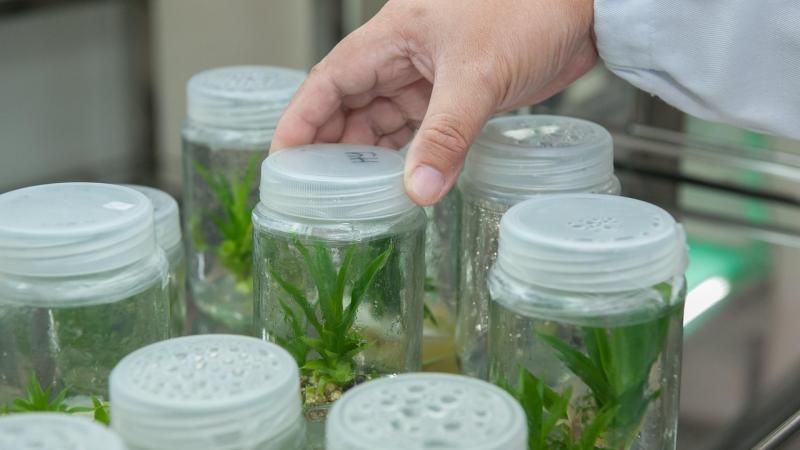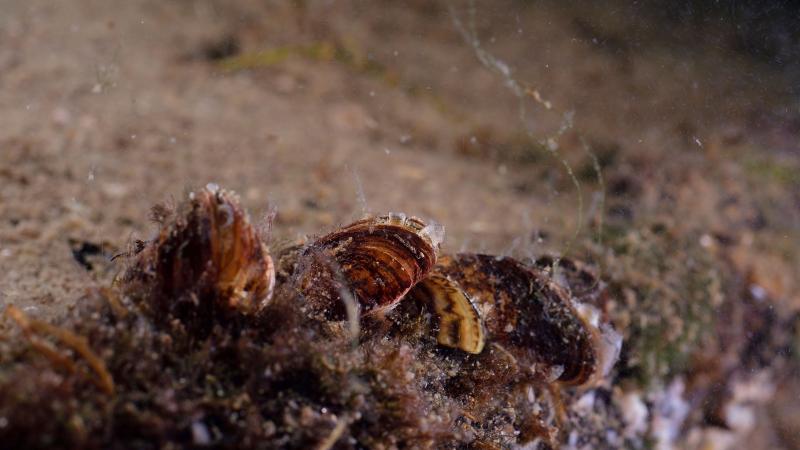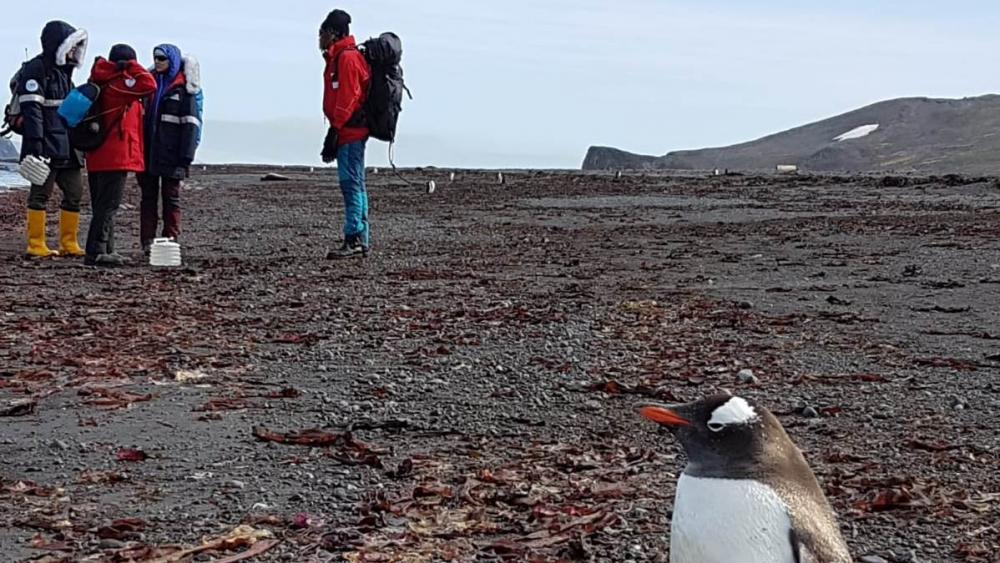
Working in storms and sleet is pretty cold and wet, but – also thanks to the curious "locals" and the glaciers and volcanic cones in the background – a unique experience. | Photo: Hans-Peter Grossart/IGB
IGB scientist Hans-Peter Grossart and IGB doctoral student Alexandra Livenets are currently in the Antarctic, on King George Island. The researchers are using the Dallmann Laboratory of the Alfred Wegener Institute at Carlini Station to explore parasitic fungi on diatoms that live in or on the ocean floor. Since these algae are at the bottom of Antarctic food webs, the fungal parasites also indirectly affect the lives of penguins and elephant seals – colonies of which the researchers must pass to take their samples!
The investigations at Potter Cove could reveal unknown effects of climate change, such as changes in the composition of algae and in biomass due to altered patterns of parasitic infestation. They hypothesise that higher temperatures lead to an increase in parasitic infestation, which could fundamentally change food webs. In any case, climate change is already very apparent from the substantial glacial retreat and lack of snow in the Antarctic summer.
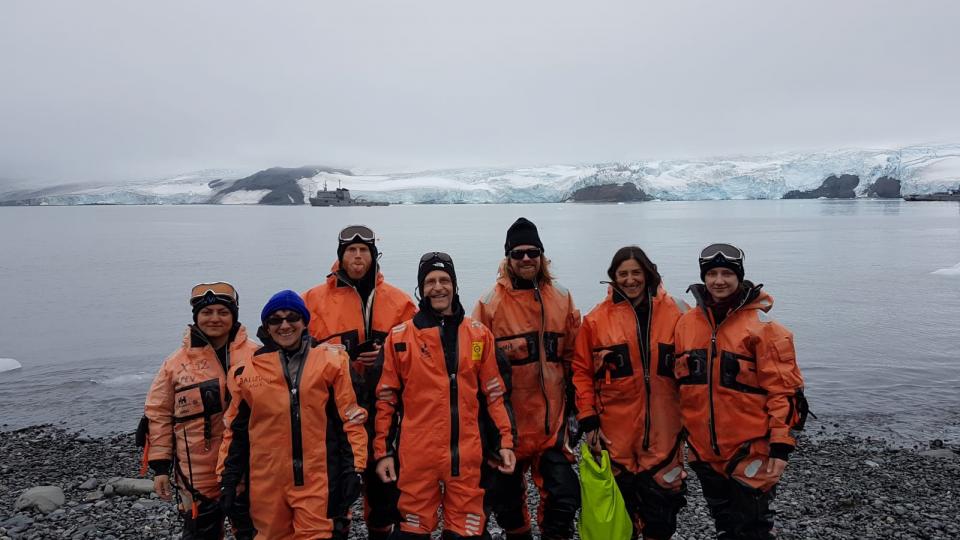
The IGB scientists collaborate with colleagues from Freie Universität Berlin and Jena University. | Photo: Hans-Peter Grossart/IGB
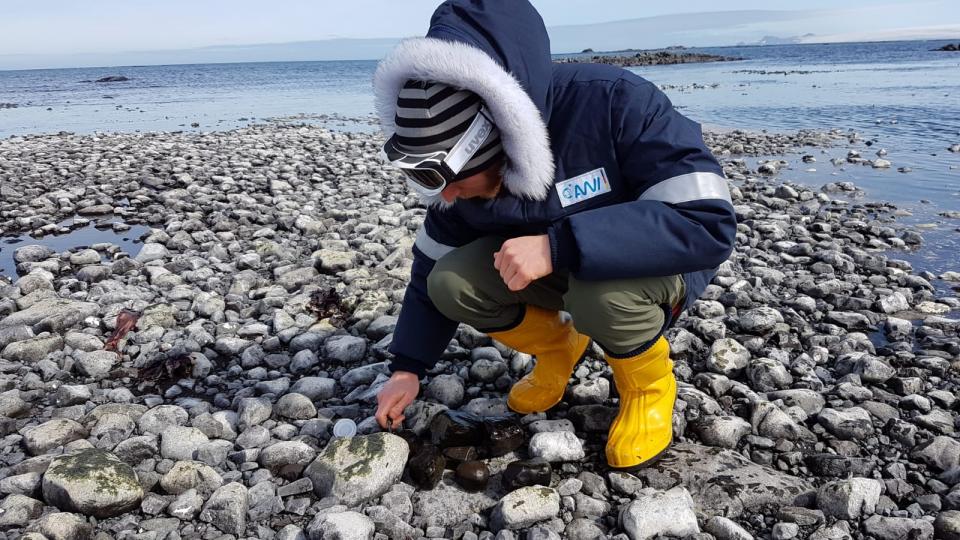
Sampling in Potter Cove. | Photo: Hans-Peter Grossart/IGB
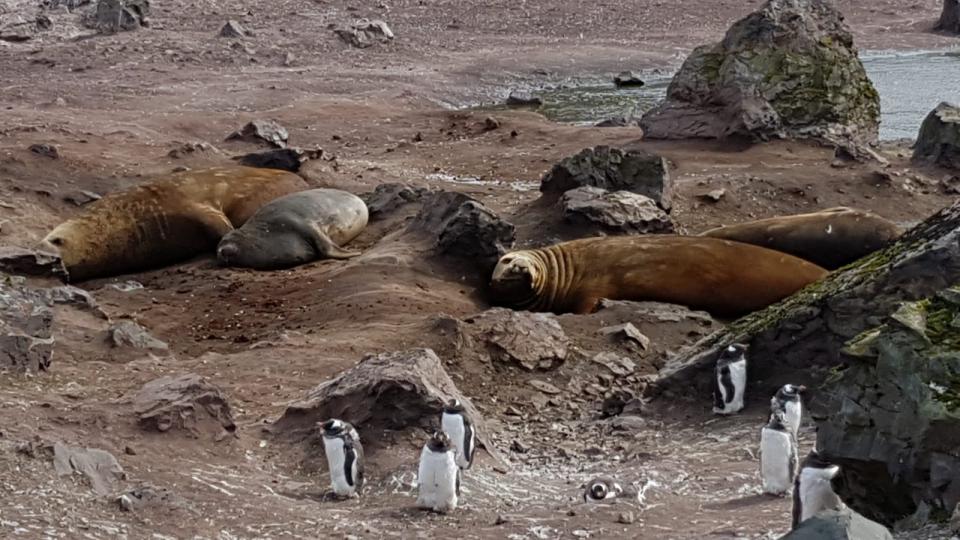
Working between penguins and elephant seals – watch out when choosing your job ;-) | Photo: Hans-Peter Grossart/IGB
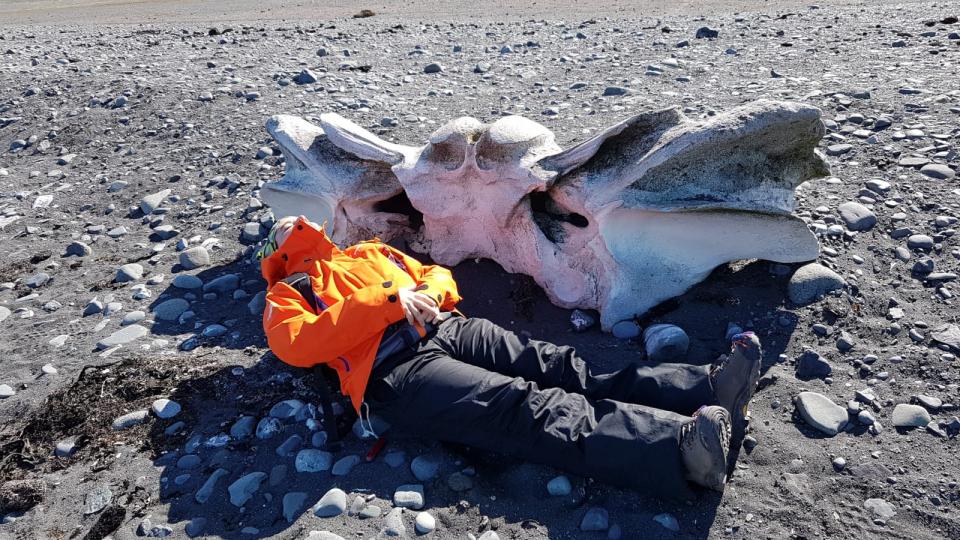
Photo: Hans-Peter Grossart/IGB
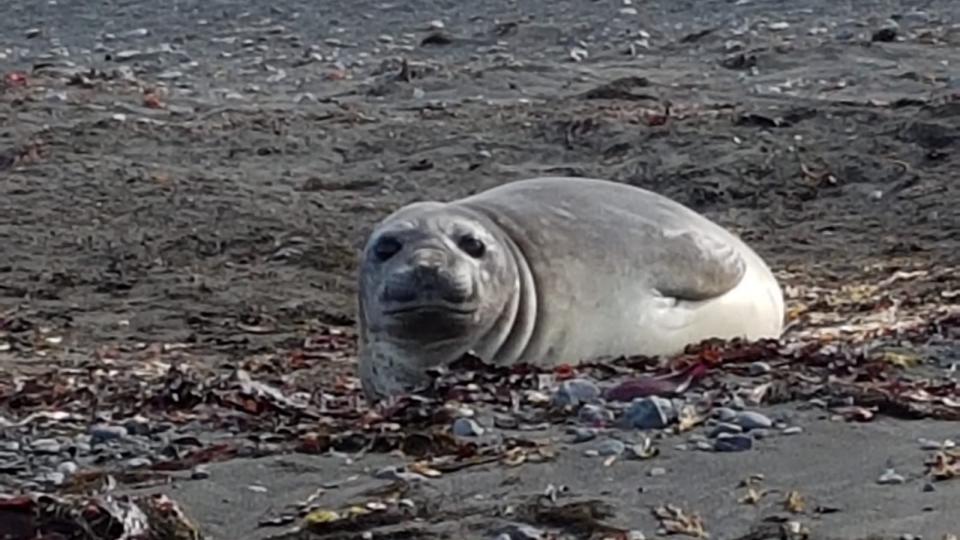
Photo: Hans-Peter Grossart/IGB
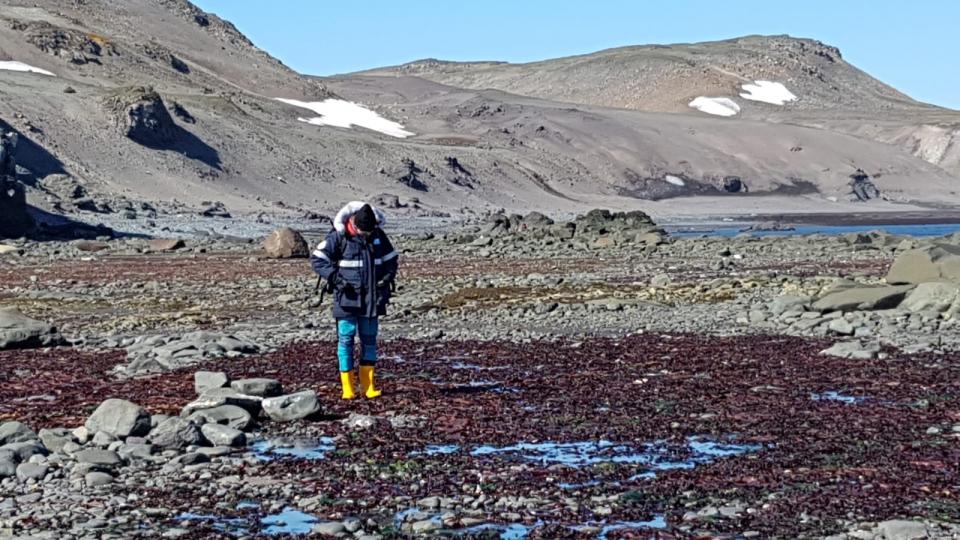
Photo: Hans-Peter Grossart/IGB
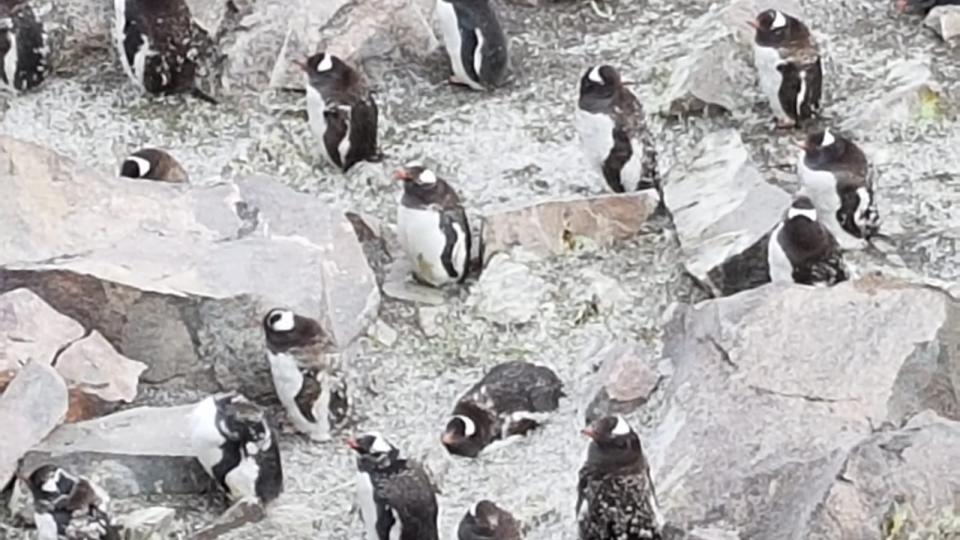
Photo: Hans-Peter Grossart/IGB



